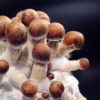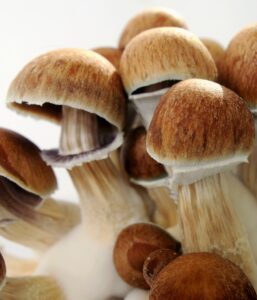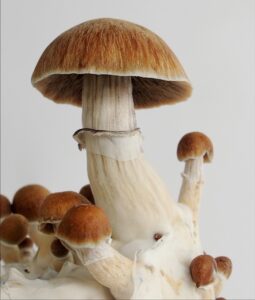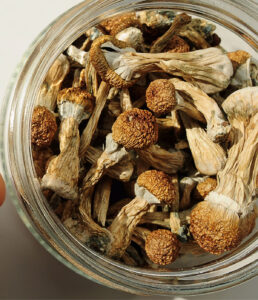
Summary of research article by Di Virgilio et al., published in the Canadian Military Pain & Rehab Journal, on February 15, 2023.
The paper, “A Retrospective Study to Determine the Impact of Psychedelic Therapy for Dimensional Measures of Wellness: A Qualitative Analysis of Response Data”, presents a comprehensive analysis of the effects of psychedelic therapy on various aspects of wellness. The study aims to evaluate the potential benefits and drawbacks of using psychedelic substances, such as LSD, psilocybin, and ayahuasca, in therapeutic settings to improve mental health and overall well-being. The authors employed a qualitative research design to investigate the subjective experiences and outcomes of individuals who have undergone psychedelic therapy.
Psychedelic therapy has recently re-emerged as a promising approach to addressing mental health issues, such as depression, anxiety, and post-traumatic stress disorder (PTSD). Although several clinical trials have demonstrated the efficacy of psychedelic therapy for specific psychiatric conditions, there remains a paucity of research on its broader impact on overall wellness. This study aims to fill this gap by exploring the influence of psychedelic therapy on various dimensions of well-being, including psychological, emotional, social, and spiritual domains.
To conduct the study, the researchers used a retrospective, qualitative design. They collected data from a sample of 120 participants who had undergone psychedelic therapy. The participants were asked to complete a series of open-ended questions about their experiences and perceptions of the therapy’s impact on their overall wellness. The responses were then analyzed using thematic analysis, a qualitative method that identifies common patterns and themes across the data.
The results of the study revealed several key themes that emerged from the participants’ responses. One of the most prominent findings was the perceived enhancement of emotional well-being. Many participants reported experiencing increased self-awareness, self-acceptance, and emotional regulation following their therapy sessions. Additionally, they noted improvements in their relationships with others, suggesting that psychedelic therapy may have a positive impact on social well-being.
Another significant theme was the experience of psychological growth and transformation. Participants described undergoing profound changes in their perspectives on life, their sense of identity, and their attitudes towards themselves and others. These shifts in worldview were often accompanied by a sense of empowerment and increased resilience, which contributed to improved mental health and overall well-being.
Spirituality also emerged as a key theme in the participants’ responses. Many individuals reported having mystical or spiritual experiences during their psychedelic therapy sessions, leading to a deeper connection with themselves, others, and the world around them. This enhanced sense of interconnectedness was associated with increased compassion, empathy, and a greater appreciation for the present moment.
Despite the numerous positive outcomes reported by the participants, the study also highlighted potential challenges and drawbacks associated with psychedelic therapy. Some individuals experienced intense emotional reactions, confusion, or disorientation during their sessions, which could be distressing. The authors emphasize the importance of proper preparation, support, and integration to mitigate these risks and maximize the benefits of psychedelic therapy.
In conclusion, the study provides valuable insights into the potential impact of psychedelic therapy on various dimensions of wellness. The findings suggest that, in addition to its therapeutic benefits for specific mental health conditions, psychedelic therapy may have broader positive effects on emotional, psychological, social, and spiritual well-being. However, further research is needed to better understand the long-term outcomes, potential risks, and optimal therapeutic approaches associated with this promising form of treatment.







